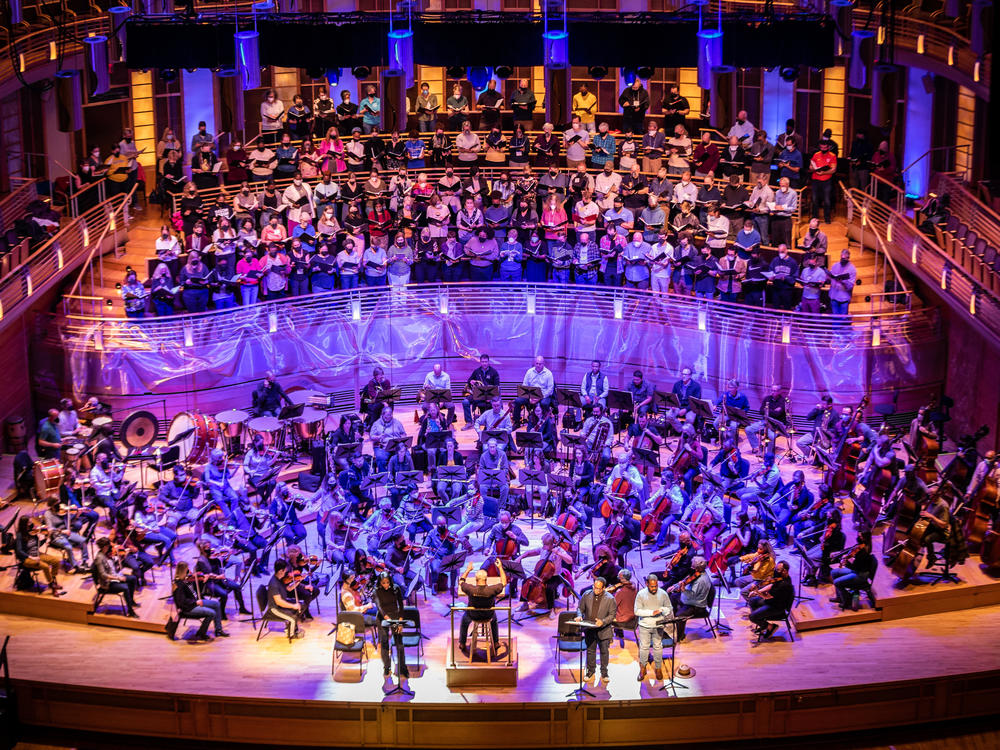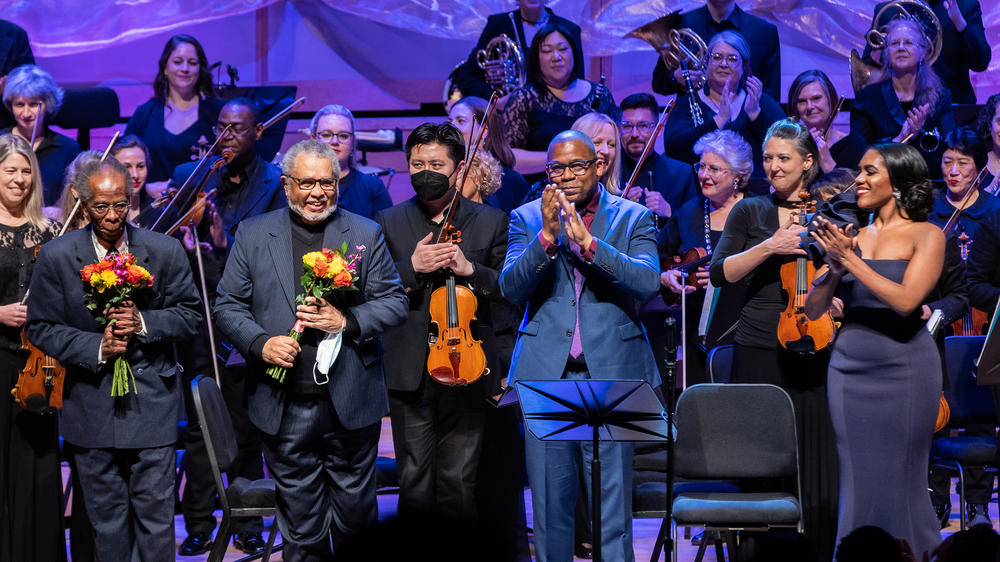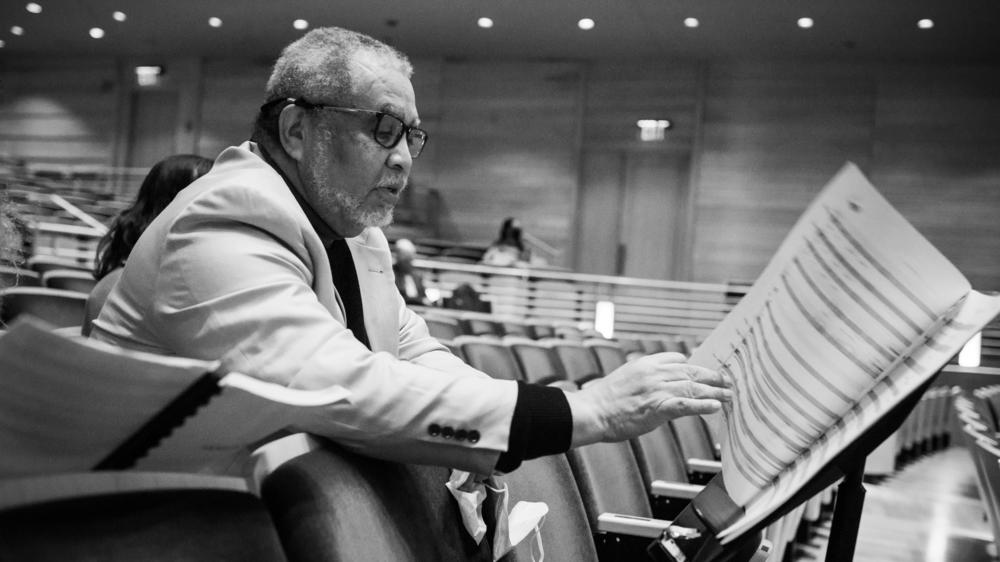Section Branding
Header Content
George Floyd remembered in new choral work
Primary Content
The death of George Floyd nearly two years ago triggered mass protests across the US and around the world after a video was shared online showing a white police officer, since convicted of murder, holding his knee on the Black man's neck until he stopped breathing.
Composer Adolphus Hailstork and librettist Herbert Martin, both in their 80s, joined forces to create an orchestral work meant for a large chorus and three soloists that would pay tribute to Floyd. It premieres Saturday, March 26, at the Music Center at Strathmore just outside Washington, D.C.
The piece, titled "A Knee on the Neck," begins with a "commandment" Black parents give to their children: always be on their best behavior to avoid getting hurt, thrown in prison or even killed. To come home in one piece. Martin and Hailstork both recall these kinds of stern orders from their own childhoods – it's part of the reason why they have collaborated for three decades to create lyrical pieces inspired by ordinary African-Americans and historical figures.
"Every Black family in America must have had this kind of talk," Martin remembers. "My mother simply said, 'If you go downtown to do something for us, you must do this, this and this and this. Because I don't know what will happen' ... so all of that seemed to be welling up inside of my mind."
Reflecting that experience called for something grandiose, given the magnitude of racially motivated violence that has taken innumerable lives in America — Floyd, Emmett Till, Daunte Wright, Breonna Taylor. Countless more.
"It's the size of the subject that Herb gave me. It's a big theme," Hailstork says. We're talking about the taking of a life, the taking of many lives, and the general cultural attitudes we have. There's a little spot in the text, Herb says there's a virus going around that's killing people and it's very well done. Of course, everybody's going to be thinking about omicron or something like that. But no, the virus is the virus of hate and murder in our culture. This is a big theme ... It's a very dramatic score because he gave me a dramatic piece of writing."
There's a raucous opening sequence that evokes bustling Minneapolis, vignettes of African drumming, the Black spiritual "O Freedom," cascading vocal passages of Floyd's last words "I can't breathe," the stillness of death and, finally, a hopeful hymn.
In addition to its own chorale, the National Philharmonic will be joined by the Washington Chorus, the Howard University Chorale, plus Black soloists J'Nai Bridges, Norman Shankle and Kenneth Overton.
"It's important that you hang on to the memory of those things," Martin says, "so you don't repeat these incidents over and over and over again. I think that that is one of the major things that I would like people to remember and to pass on this memory as they have experienced it to their relatives, to their family, to their friends."
The piece ends on a hopeful note, a vision of a more perfect union where Americans of all backgrounds and creeds live in harmony.
"There is a moment of universal hand-clenching, you might say, not fist-clenching, hand outreached in hope that there will be a greater sense of peace and respect among all the people of America."
Copyright 2022 NPR. To see more, visit https://www.npr.org.



